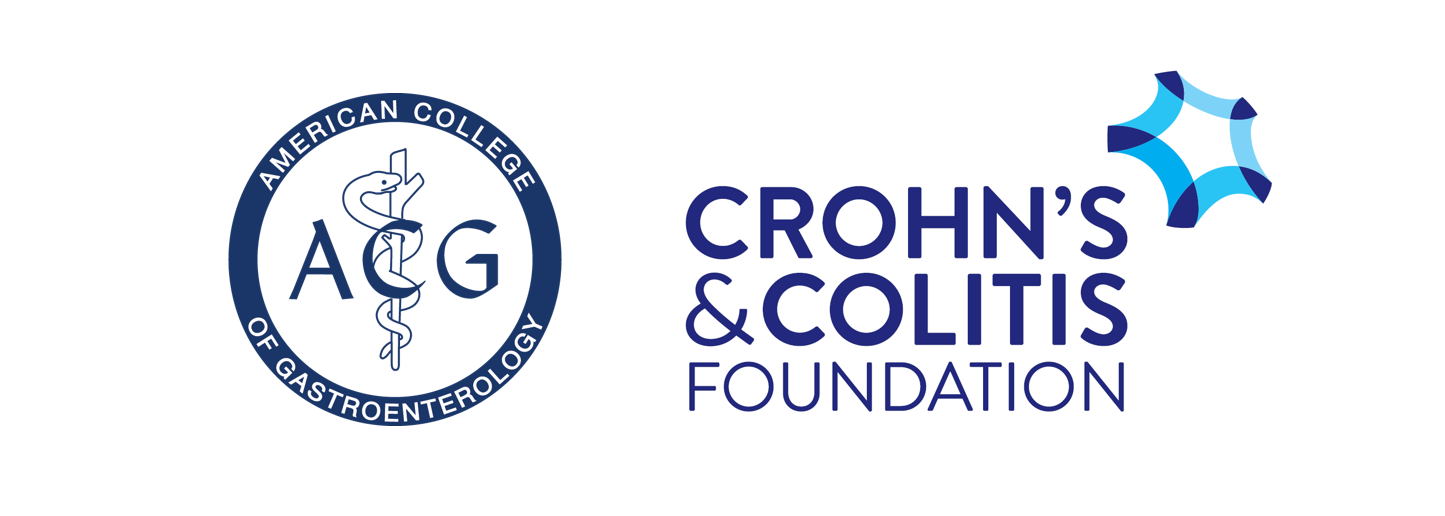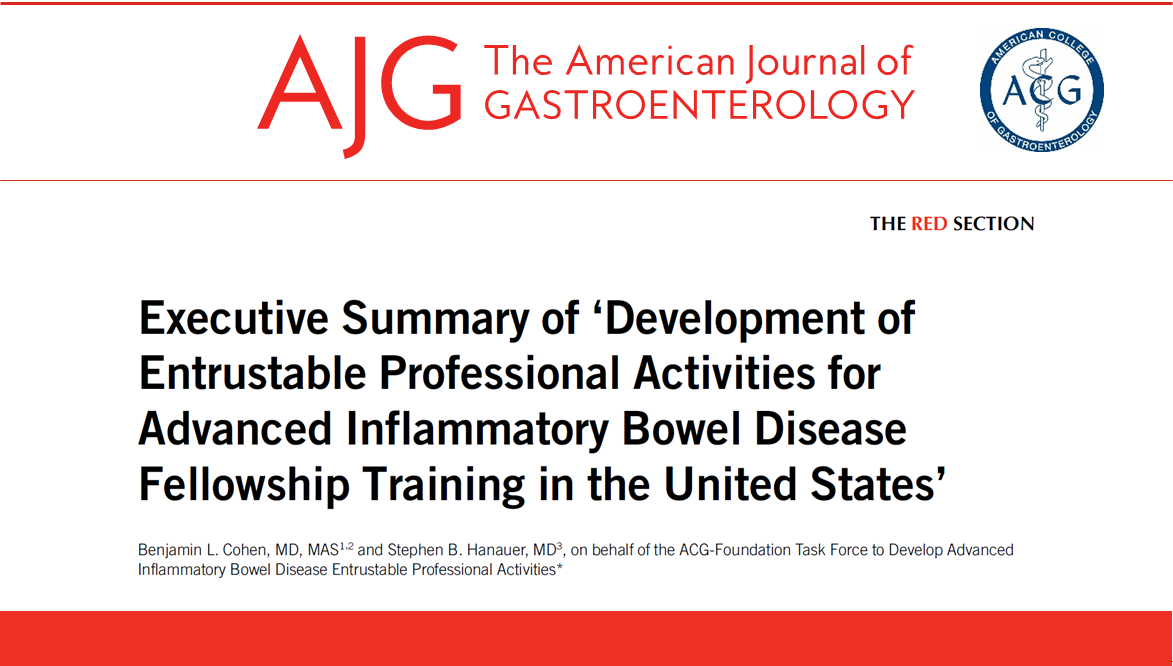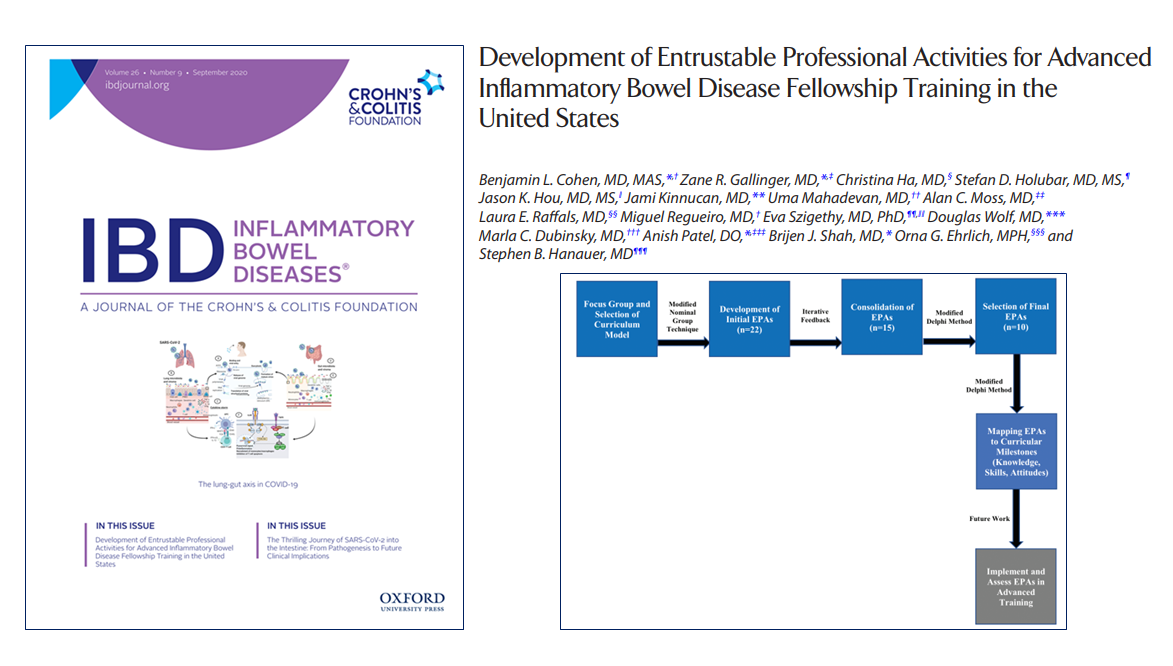
Defining What Constitutes an IBD Expert in Practice
ACG and The Crohn’s & Colitis Foundation Publish Entrustable Professional Activities for Advanced IBD Fellowship Training in the U.S.
August 21, 2020 — The American College of Gastroenterology (ACG) and The Crohn’s & Colitis Foundation (the Foundation) are proud to announce their joint publication of “Development of Entrustable Professional Activities for Advanced Inflammatory Bowel Disease Fellowship Training in the United States” in both The American Journal of Gastroenterology and the Foundation’s journal, Inflammatory Bowel Diseases.
The two organizations convened a task force to develop Advanced IBD Entrustable Professional Activities (EPAs) to represent the expertise of an Advanced IBD physician and illustrate the differences between Advanced IBD physicians and other clinicians. A critical aspect of the EPA development was identifying physician work that should be core to a general gastroenterologist in the United States versus that which should set apart an expert in IBD.
A Guide for Curriculum Development in Advanced IBD
This defined list of key physician activities is expected to serve as a guide for developing advanced IBD fellowship curricula by providing advanced fellows a more specific framing of the entrustment tasks expected by the end of fellowship. On a broader level, the advanced IBD EPAs serve as a consensus statement for what constitutes an IBD expert in practice.
Learn More
- A complete overview of the Task Force methodologies and recommendations can be found in Inflammatory Bowel Diseases. Cohen, et al., “Development of Entrustable Professional Activities for Advanced Inflammatory Bowel Disease Fellowship Training in the United States.” Click to Read in IBD
- An Executive Summary, highlights and key tables are available in The American Journal of Gastroenterology Red Section. Click to Read in AJG.

About Entrustable Professional Activities
Entrustable Professional Activities are designed to link competencies to clinical practice and operationalize them in a measurable manner. They are defined as the comprehensive set of tasks or responsibilities that any practicing subspecialist should be capable of performing in their particular field. They were conceived in part to address the concern that competency frameworks would otherwise be too theoretical to be useful for training and assessment in daily practice. An EPA must be detailed enough to both set trainee expectations as well as guide assessment and entrustment decisions by supervisors. EPAs also offer curriculum developers and teachers tangible goals for aligning teaching and training with clinical practice. The Knowledge Skills and Practice supporting each EPA in this joint document serve as curricular milestones and contain more granular language for observable outcomes that must be demonstrated to establish competence.
Authors and Task Force Members
Benjamin L. Cohen, MD, MAS
Zane R. Gallinger, MD
Christina Ha, MD, FACG
Stefan D. Holubar, MD, MS
Jason K. Hou, MD, MS, FACG
Jami Kinnucan, MD
Uma Mahadevan, MD, FACG
Alan C. Moss, MD, FACG
Laura E. Raffals, MD, MS, FACG
Miguel Regueiro, MD, FACG
Eva Szigethy, MD, PhD, FACG
Douglas Wolf, MD, FACG
Marla C. Dubinsky, MD
Anish A. Patel, DO, FACG
Brijen J. Shah, MD
Orna G. Ehrlich, MPH
Bradley C. Stillman, Esq.
Maria T. Susano
Stephen B. Hanauer, MD, MACG



